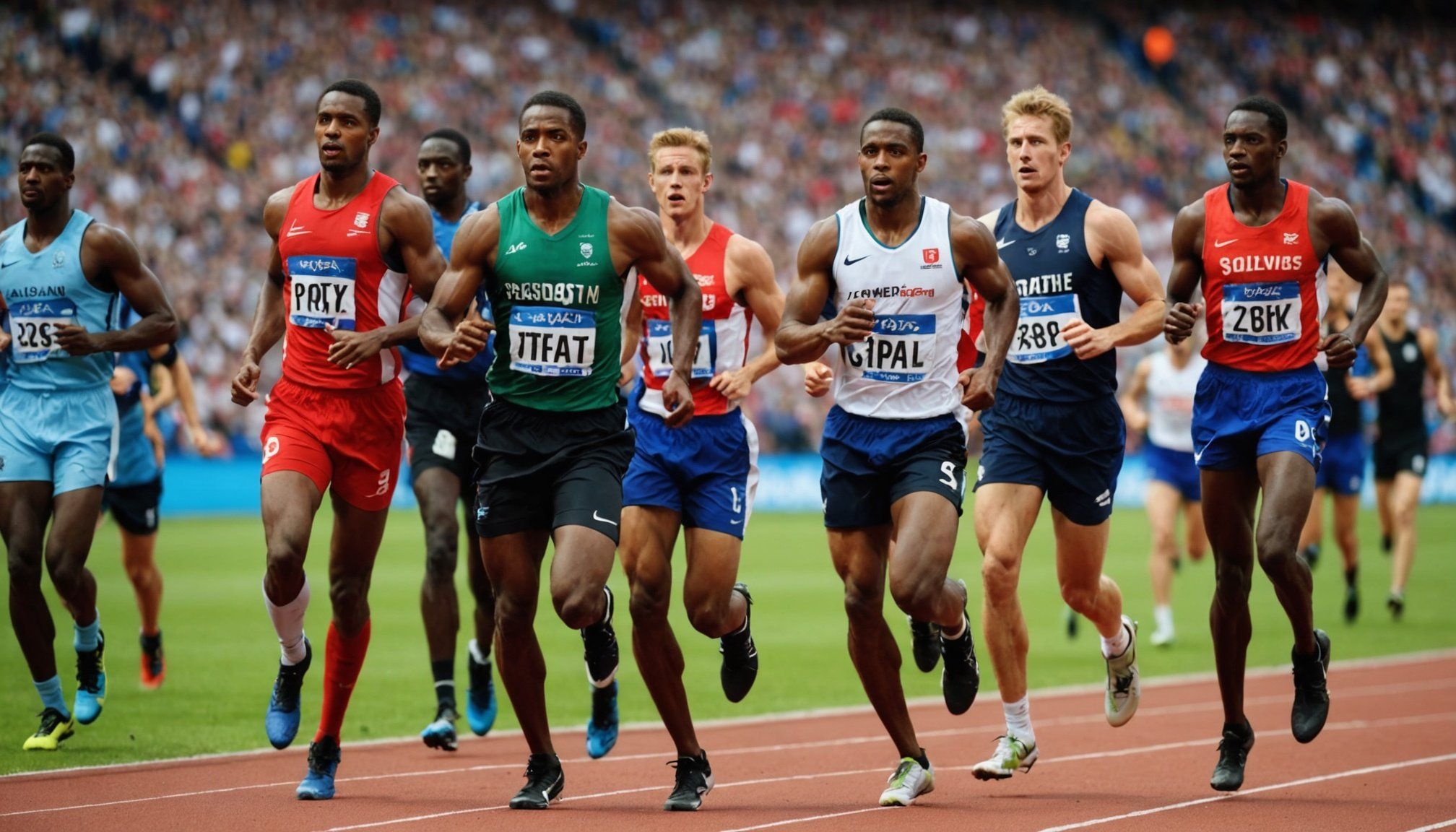In the heart of the United Kingdom, where sport pulses through the veins of its people, the concept of fair play is ingrained in every competition. Whether you’re a seasoned football player or a weekend warrior, understanding and adhering to fair play regulations is paramount to maintaining the integrity and enjoyment of the game.
The essence of fair play goes beyond just knowing the rules; it embodies a spirit of respect, equality, and integrity. As athletes, clubs, and sporting organisations, you are not just participants but custodians of this cherished tradition. Your ability to navigate the intricacies of fair play is not only crucial for financial stability but also for fostering a culture of respect and equality in sports.
Also read : How does the UK government support athletes with disabilities in competitive sports?
Dive with us into the nuances of fair play in the UK, discover the role of governance in ensuring an even playing field, and uncover how you, as athletes and sports enthusiasts, can contribute to a landscape where respect and competition thrive together.
Understanding Fair Play in the UK Sports Scene
Fair play is not merely a set of guidelines but a deeply-rooted philosophy that governs the sporting community in the UK. From grassroots clubs to professional leagues, the principles of fair play ensure that everyone, regardless of their skill level or background, can enjoy their respective sports in a competitive yet respectful environment.
Have you seen this : What are the long-term impacts of early sports specialization on athletes in the UK?
What Constitutes Fair Play?
Fair play embodies respect for the rules, the opponents, the officials, and the spectators. It’s about playing with integrity and showing respect not only for your team but also for the competition.
-
Respect for Rules: Adhering to the established regulations of any sport is the first step in ensuring fair play. Rules are designed to maintain order and prevent unfair advantages.
-
Sportsmanship: More than just a handshake after a match, sportsmanship involves playing with dignity and acknowledging the skills and efforts of others, whether in victory or defeat.
-
Equality and Inclusivity: Fair play promotes the idea that everyone should have equal opportunities to participate in sports, regardless of their background or ability.
The Role of Organisations
Clubs and sporting organisations are responsible for promoting and maintaining fair play. They are tasked with:
- Educating athletes about the importance of fair play.
- Implementing and enforcing rules that promote equality and respect.
- Creating environments that discourage discrimination and encourage participation from all sectors of society.
As you engage in various sports activities, keep these fundamental aspects in mind. They are the bedrock upon which a culture of respect and fairness is built.
The Role of Governance in Upholding Fair Play
Governance plays a pivotal role in ensuring that fair play principles are woven into the fabric of UK sports. From local clubs to national bodies, the way rules and policies are developed and enforced significantly impacts the sporting experience for athletes and fans alike.
Governing Bodies and Their Influence
Governing bodies, such as The Football Association (FA) in England or Sport England, have an overarching responsibility to maintain fairness across all levels of sports. They achieve this by:
- Developing comprehensive regulations that cover everything from player conduct to competition formats.
- Ensuring that there is consistent enforcement of rules across all events and competitions.
- Facilitating open dialogue with clubs and athletes to address concerns and improve the sporting landscape.
Ensuring Financial Integrity
Financial transparency and accountability are crucial in maintaining fair play. Governing bodies work towards ensuring:
- Clear and fair distribution of resources to minimise financial disparities among teams.
- Monitoring and audits of financial activities within clubs to prevent corruption and ensure funds are used to promote the sport.
Empowering Athletes
People are at the core of governance strategies. Empowering athletes to understand their rights and responsibilities ensures that they can advocate for fairness both on and off the field:
- Providing education on ethics and fair play as part of athlete development programs.
- Encouraging players to report unfair practices or discrimination without fear of reprisal.
As active participants in the sports community, you have the power to influence positive changes by supporting governance structures that uphold integrity and transparency.
Practical Steps for Athletes to Promote Fair Play
As athletes, your influence stretches beyond the confines of the playing field. You have the power to affect change and promote fair play through conscious actions and decisions. Here’s how you can play your part in fostering a culture of fairness and integrity:
Knowledge is Power
Understanding the rules and regulations that govern your sport is essential. Stay informed by:
- Regularly reading updates from your club or sport’s governing body to stay aware of any changes in regulations.
- Attending workshops and seminars focused on fair play and ethics.
Leading by Example
Your behavior sets the tone for others, especially younger athletes looking up to you.
- Exhibit Respect: Treat referees, opponents, and spectators with respect at all times.
- Demonstrate Integrity: Play honestly and avoid actions that could unfairly influence the outcome of a match.
Fostering Team Spirit
Use the power of the team to cultivate a supportive and inclusive environment:
- Encourage open conversations within your team about the importance of fair play.
- Celebrate achievements without gloating and accept defeats gracefully.
Reporting Misconduct
Don’t shy away from addressing issues that compromise fair play.
- Report any unethical behavior or discrimination you witness to the appropriate authorities.
- Support fellow athletes who might be facing challenges due to unfair practices.
Taking these practical steps ensures that you contribute positively to the sporting community, promoting an environment where fairness and respect are at the forefront.
Conclusion
In the vast and vibrant landscape of UK sports, fair play is the guiding light that ensures every competition is not only a test of skill but also a celebration of respect, equality, and integrity. As athletes, clubs, and sporting organisations, your role in upholding these values is crucial.
By committing to fair play principles, staying informed about governance issues, and actively promoting an environment of respect and inclusion, you help build a sports culture that thrives on competition and camaraderie. Remember, the spirit of fair play goes beyond simply following the rules—it is about being a beacon of integrity and respect both on and off the field.
So, as you lace up your boots or gear up for the next match, hold these values close. They are the foundation upon which great sportsmanship is built and celebrated. Embrace the role of being a true ambassador of fair play, inspiring others to follow in your footsteps and ensuring that the spirit of sportsmanship remains timeless.











